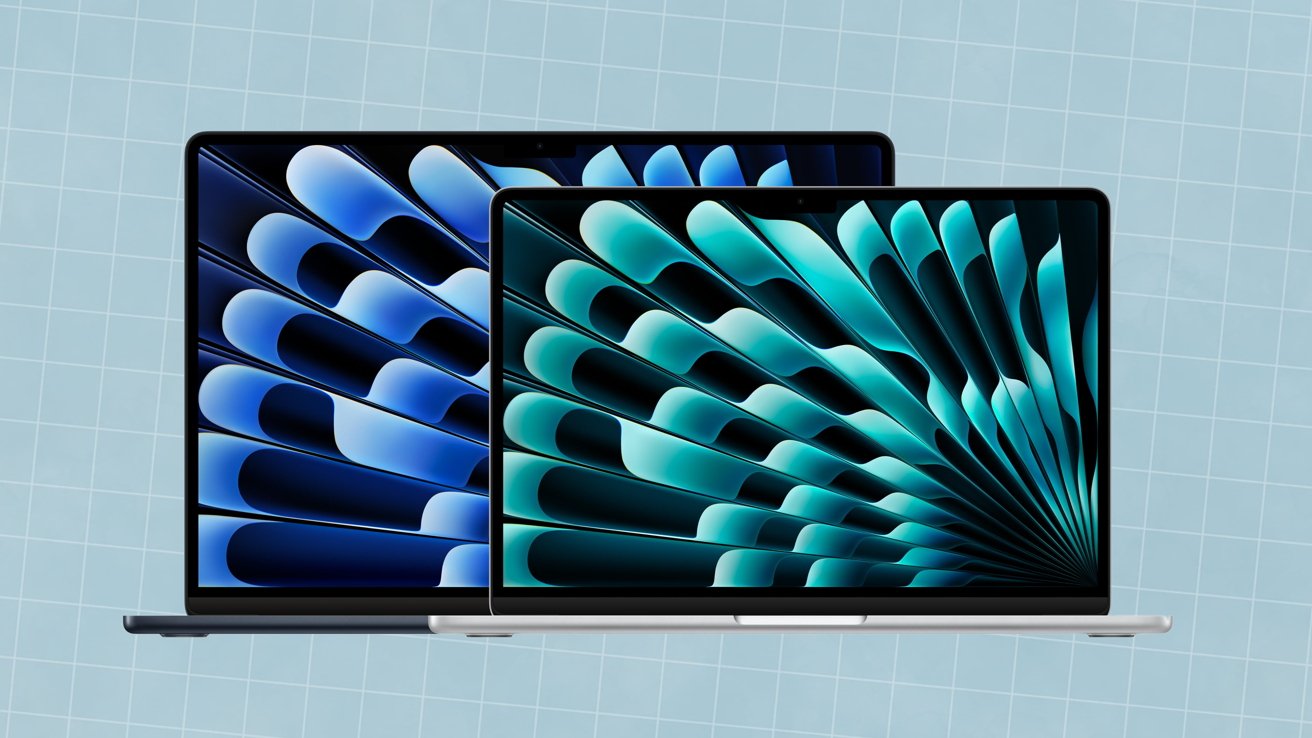The first benchmarks for Apple's M3 MacBook Air have allegedly appeared, with the results showing a big improvement over its predecessor, the M2 MacBook Air.
Apple introduced its M3 MacBook Air lineup on Monday, adding the 3-nanometer chip to its thin and light notebook line. Less than 24 hours later, what appear to be the first benchmarks for the new models have surfaced.
The benchmarks for the M3 models, found in the Geekbench 6 database by MySmartPrice on Tuesday, show a MacBook Air sporting the M3 chip. The results claim it managed 3,157 points for single-core testing and 12,020 for multi-core.
By comparison, the Geekbench chart shows the 15-inch MacBook Air with M2 as reaching 2,595 for the single-core test and 9,744 for the multi-core. This equates to an approximate performance improvement of about 20% over the M2 MacBook Air.
While the results may be faked, they do appear to be in the right ballpark for the M3 chip. The 14-inch MacBook Pro with M3 is listed as scoring 3,085 for the single-core test and 11,561 for the multi-core version.
It's worth remembering that this is also just one benchmark result for the M3 MacBook Air, whereas the main listings for the others are based on averages. It's possible that the result is real, but an optimal result submitted instead, and that it could reduce closer to the MacBook Pro result with more submissions.
The listing for the benchmark also adds that the model tested has the 10-core GPU variant, as well as 16GB of memory.
 Malcolm Owen
Malcolm Owen








 Charles Martin
Charles Martin
 Marko Zivkovic
Marko Zivkovic
 Andrew Orr
Andrew Orr
 Amber Neely
Amber Neely

 William Gallagher and Mike Wuerthele
William Gallagher and Mike Wuerthele









12 Comments
Upgrading my Wife from a 10 year old MBP I7 to an M3 Air. To say she should be stunned by the performance is an understatement.
"Big" improvement over M2? Even Apple marketing isn't trying to make that claim, focusing instead on comparisons with Intel chips and M1. For the sake of argument, let's say the 20% bump in bench testing is accurate... what does that translate to in real world tasks? Is it even 10%? And considering that the vast majority of real world tasks are now handled instantly, how much does a 10% improvement on "instantly" matter? Possibly, professionals who work in processor-intensive tasks that do take time on a daily basis--video editing comes to mind--would benefit if everything was 10% faster. But those people are probably buying Macbook Pros or desktop machines.
And look, I get it: what was Apple going to do, NOT upgrade the MBAs to M3? Obviously, this needed to happen, if for no reason other than marketing purposes. But this is Apple's conundrum across product lines, except at the pro level: the hardware is already beyond what the vast majority of people will ever demand of it. Apple now needs new and compelling capabilities that require new hardware to drive the rationale for upgrading Apple products. We all know that the M4, M5, M-etc. chips are coming in a year, two, three, whatever. Do you care? Tell me what those machines will be able to DO that my current machines can't and you'll have my attention.